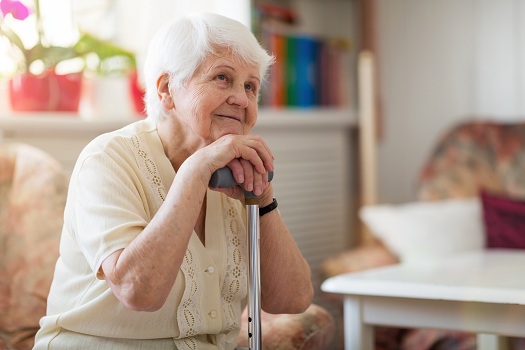By now, you likely already know all about how Parkinson’s disease affects your senior loved one’s body physically. Tremors, facial masking, and freezing are all very evident just by watching how your loved one performs daily activities. However, you should also know this health condition has a tremendous impact on emotions. As you help with your loved one’s daily routine, be alert for these emotional symptoms that all need attention.
Moving from Denial to Acceptance
When they’re first diagnosed, seniors often go through a mental process that’s very similar to what people experience with grief and loss. In the beginning, your loved one may try to avoid talking about the condition or outright refuse to even speak to the doctor. Try to be gentle during this time, but be aware you may also have to put your foot down when it comes to your loved one’s safety. Over time, most seniors accept their diagnosis and become more willing to plan for their own care.
Your loved one may get a great deal of benefit from a professional caregiver, who can provide companionship as well as help with everyday tasks. Families looking for top-rated homecare providers can reach out to Home Care Assistance. From respite care to specialized Alzheimer’s, dementia, stroke, and Parkinson’s care, there are many ways we can make life easier for seniors and their loved ones.
Facing Depression
Feelings of prolonged sadness may be caused by your loved one’s reaction to having Parkinson’s disease or watching as his or her abilities diminish. Some symptoms of depression can also be caused by the medications your loved one is prescribed to slow the progression of Parkinson’s disease. Always mention depression to your loved one’s doctor to see if medical treatment is needed for the condition. Then practice strategies at home to keep the symptoms at bay, such as helping with exercise each day.
Experiencing Anxiety
Anxiety symptoms can arise from changes that occur in the brain due to Parkinson’s. Your loved one may also feel anxious about what the future holds. Your loved one’s physician may prescribe medications to help with anxiety. Counseling can help seniors manage anxiety symptoms, such as being unable to sleep or feeling constantly worried. Your loved one may also benefit from spending time with other caregivers who can serve as a distraction from his or her worries.
For many seniors in Carmichael, live-in care is an essential component of aging in place safely and comfortably. However, it’s important for them to have caregivers they can trust and rely on. At Home Care Assistance, we extensively screen all of our live-in and 24-hour caregivers and only hire those who have experience in the senior home care industry. Our strict requirements ensure seniors can remain in the comfort of home with a reduced risk of injury or serious illness.
Getting Past Apathy
Apathy may occur as a symptom of depression, but it can also occur as a completely separate emotional effect that shows up on its own. Your loved one may be feeling apathetic if he or she loses interest in normal daily activities and starts to show no emotion. For example, your loved one may not want to go to a grandchild’s birthday party and act like it doesn’t bother him or her at all to skip it. In addition to talking to your loved one’s doctor about this symptom, you can help your loved one take care of his or her needs by creating a strict routine for eating, bathing, and sleeping.
Handling Stress and Frustration
Each new symptom that occurs with Parkinson’s can be stressful to manage. Your loved one may experience challenging emotions, such as frustration with each new problem he or she encounters. When this happens, help your loved one stay calm by using strategies such as suggesting a break. You can also fill your loved one’s day with positive moments, such as spending time with friends to alleviate feelings of stress.
Parkinson’s disease can be particularly challenging, and both seniors and family caregivers can easily get overwhelmed. Caring for a senior loved one can be challenging for families who don’t have expertise or professional training in home care, but this challenge doesn’t have to be faced alone. Family caregivers can turn to Carmichael Home Care Assistance for the help they need. We provide high-quality live-in and respite care as well as comprehensive Alzheimer’s, dementia, stroke, and Parkinson’s care. Trust Home Care Assistance to provide high-quality compassionate, professional home care for your loved one. Call one of our friendly Care Managers today at (916) 485-4663.
